Search Results for Tag: education
Columbian entrepreneur gives disadvantaged youth a chance
Fighting poverty is a prime objective of Colombian entrepreneur Felipe Vergara. His approach is to support education, which is why he founded the Lumni scholarship network. Corporations invested so that young people with no means can go to college. Once they’ve found a good job, they can pay back the scholarship.
Watch this DW video for more.
Pakistani teacher sacrifices respect to help kids in need
In Pakistan, being a school teacher is looked down on. But that doesn’t stop 24-year-old Farrukh from following his passion and teaching kids from some of the country’s most socially disadvantaged areas.
Listen to the report by Haya Fatimah Iqbal in Karachi, Pakistan:
Books for a future in Nepal
Santosh from Nepal has a heart for kids living in homes, many of them trafficking victims. He brought them something completely new: a library.
Listen to the report by Aletta André:
New Delhi woman unlocks power of music for street kids
A young woman in New Delhi opens up the world of music to at-risk kids. Many of them have been traumatized and abandoned, but Faith, 23, gives them self-confidence and new skills with her organization, Music Basti.
From reporter Aletta André:
The moment we walk into the Kushi Home, Faith Gonsalves is surrounded by girls who demand her attention. “Didi, didi,” they yell at her: “Big sister.”
More than 100 girls between the ages of six and 14 live in the Kushi Home, in an industrial area in the southern outskirts of India’s capital New Delhi. Some of them might be orphans, some have run away from their homes, while others have families incapable of taking care of them.
Faith, a 23-year-old from New Delhi, has earned her popularity. For the past four years, she has been devoting most of her time to children like the girls living here, by teaching them music.
“The far majority of the children that we work with have been sexually abused,” Faith told me just about an hour before reaching the home, when we first met in a café in one of Delhi’s wealthier areas. It is impossible not to remember this while looking at all those girls, running around the playground, posing for my pictures and demanding attention from their didi.
A singer and music-lover herself, Faith knew that music can help children immensely, not only to enjoy life and forget their problems, but also to develop communication skills and to boost their confidence. To teach music and music appreciation to so-called children-at-risk, she decided to start up the project Music Basti in 2008 when she was still a college student at Delhi University.
Music Basti now organizes several workshops in singing and playing instruments every week, the occasional music performance and even launched an album with songs by the children last year. The project works together with dozens of other organizations and has worked with a few hundred volunteer teachers and musicians. It reaches out to more than 400 girls and boys in places such as Kushi Home.
Listen to the report:
The power of words
Writing can sometimes be like pulling teeth, especially if you’re a kid. Luckily there’s a creative writing place for children where missing teeth is no big thing. Welcome to 826 Valencia, a nonprofit organization (and pirate supply store) where 23-year-old Amy Langerer shares her own passion for writing.
Amy is one of many volunteers at 826 Valencia, which helps teachers inspire students to write, through after school programs, in-class tutoring, evening and weekend workshops, and collaborative story-writing sessions. Any one can help and any kid can sign up. In its 10th year, 826 Valencia has generated so much buzz and a lengthy waiting list. Other cities across the United States have also adopted the same model, with 826 National programs in Ann Arbor, Boston, Chicago, Los Angeles, New York, Seattle and Washington, DC.
Listen to the report by Melanie Sevcenko:
Learn more about 826 Valencia on its website.
India’s ‘Paperman’ recycles waste to fund education for girls
A year ago, 23-year-old Mathew Jose found out that only 20 percent of the waste generated in India is recycled. This was despite the unique system of door-to-door rag-pickers in India who buy waste from households and sell it to recyclers at a higher price. This inspired Mathew to start a recycling revolution by reviving the unorganized sector of rag-pickers – and raise funds through recycling, too.
Mathew’s passion and faith in his cause is contagious, and that’s plain to see at all his campaigns. But Mathew is quick to insist that the real hero is the movement itself, and the ones who make it all possible – the rag-pickers.
Listen to Pia Chandavarkar’s report:
India’s Paperman recycles waste to fund education for girls
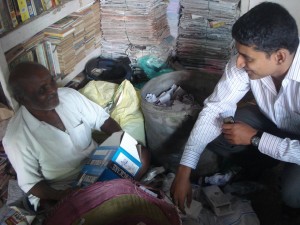
Mathew Jose, right was inspired by the scrap dealers and rag-pickers in India, who, according to him, are the ones who make recycling happen in India.
Survivors teach Khmer Rouge history to Cambodia’s teachers
Cambodia adopted a standard curriculum to help students learn about the atrocities committed by the Khmer Rouge. To make sure the message gets across, victims of the regime’s crimes tell their stories to teachers.
How do you teach the next generations about a country’s dark secrets from the past? Has your country dealt with anything similar?
Read more from Cambodia here.
Mozambique activist raises sexual health awareness
Berta Bimba is in her early 20s and got into activism to spread awareness about sexual health issues, education, and to get people like her, who have spent time on the streets, into jobs and a new future.
Med student broaches tough issues with teens
When teens face tough issues, like sex, alcohol and drug abuse, parents and teachers are the last people they want to talk to. So Italian medical student Barbara co-founded a peer group to address teen’s questions.
Barbara Ariatti and her fellow peer educators are all medical students at the University of Bologna. It’s a very special place to study as it’s said to be the oldest university in the world!
Almost a thousand years’ worth of students have attended its faculties, most of which are still located in beautiful medieval buildings in the historic city center.
No surprise then that one of the city’s nicknames is Bologna la dotta: “Bologna the Learned.”
The Faculty of Medicine has its own very special history too. During the 17th century, medical professors performed some of the earliest dissections of human cadavers in the Anatomical Theater.
It was one of the first universities to teach anatomy this way, much to the displeasure of the Catholic Church, which opposed the practice.
Made of wood, with a marble dissection slab in the center, the Anatomical Theater was almost completely destroyed by bombs during World War II, but was then perfectly reconstructed, using as much of the original wood as possible. And you can still visit it today. Look out for the so-called spellati – two “skinless” naked wooden statues on either side of the teaching chair, literally showing off all their muscles!
Here’s the University of Bologna’s website.




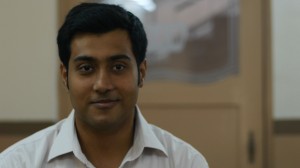
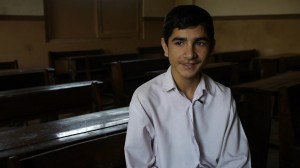
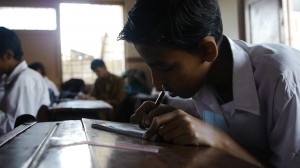
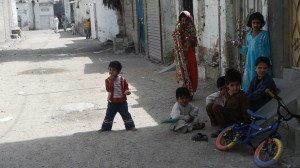

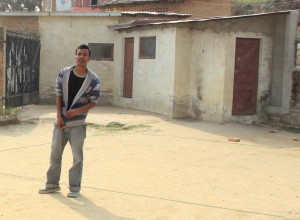
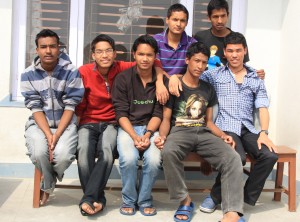
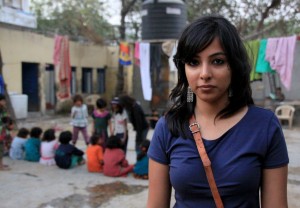
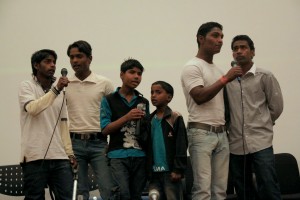
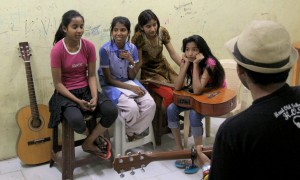

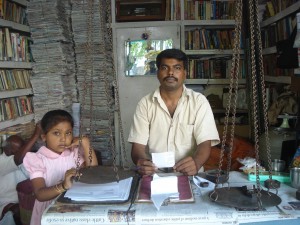
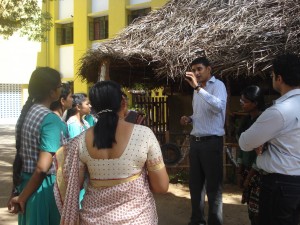
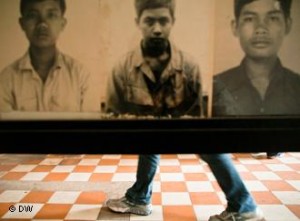





Feedback